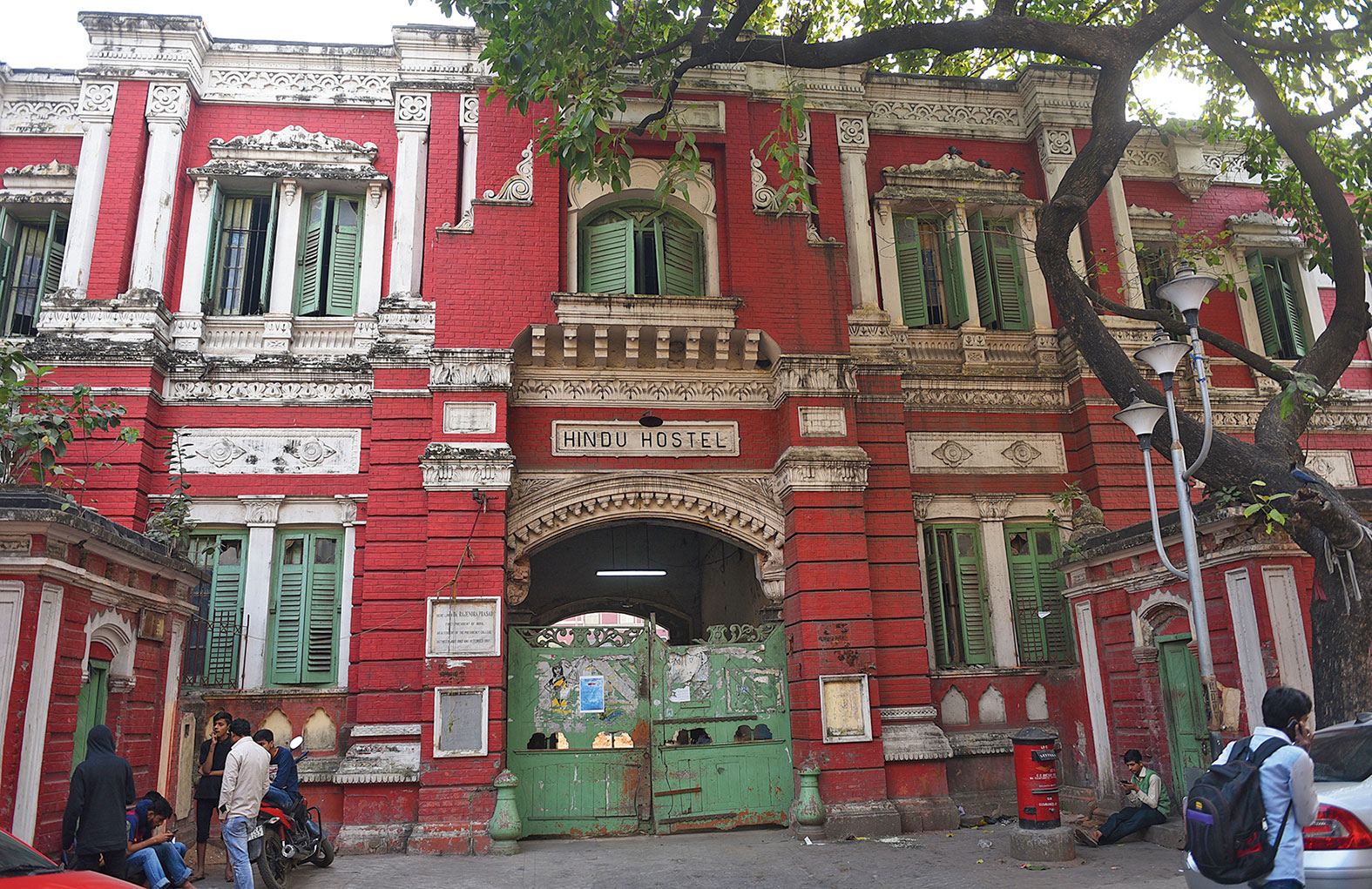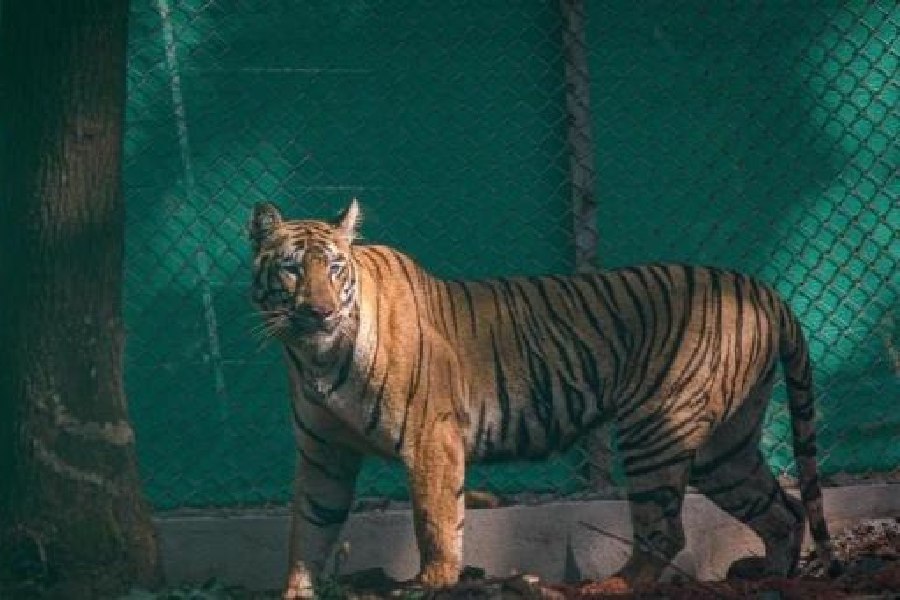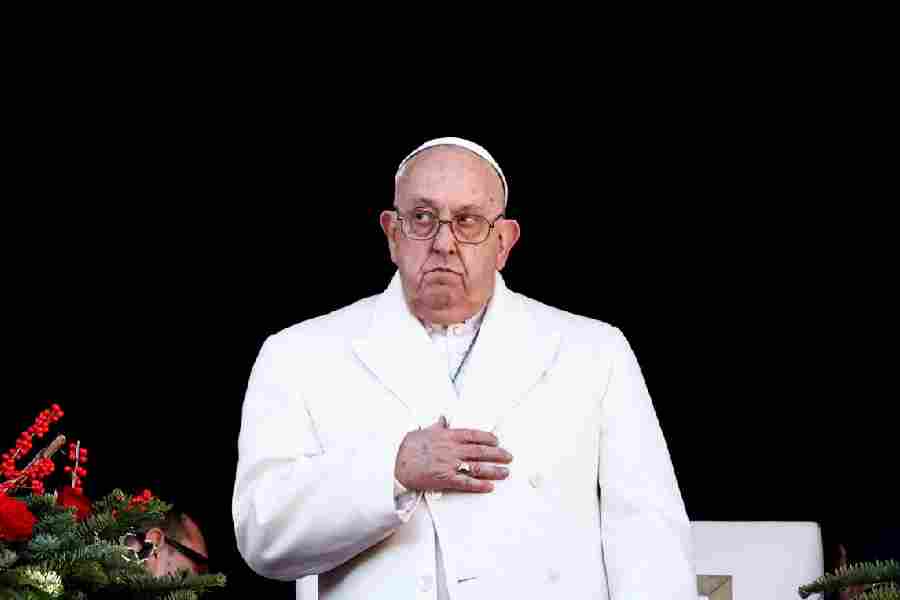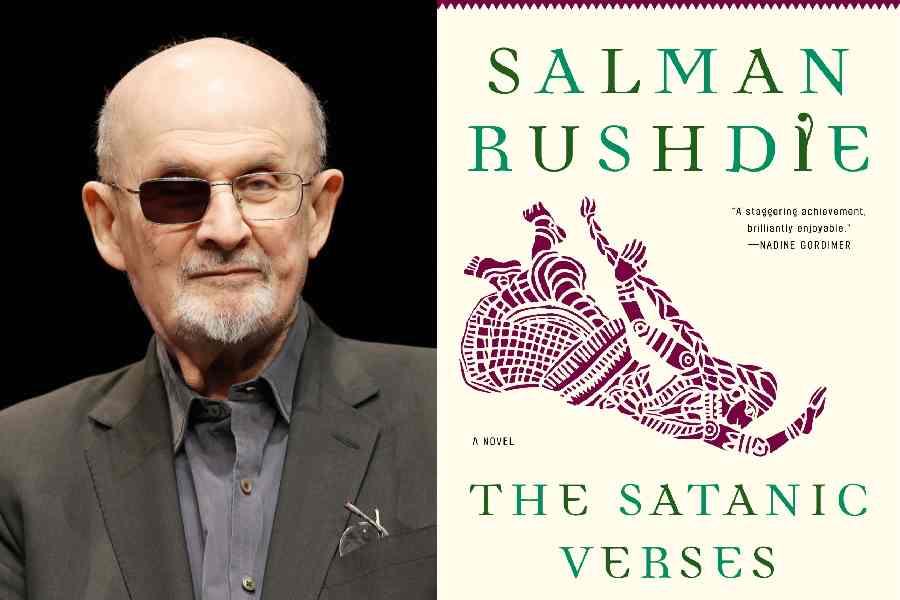In July 2015, Eden Hindu Hostel for male students of Calcutta’s Presidency University, Maulana Azad College, Sanskrit College and Goenka College of Commerce and Business was vacated for repair work. Three years on, it is yet to be reopened. On August 4, students launched a protracted protest. On September 11, the annual convocation had to be shifted after angry students locked the university premises. And Governor Keshari Nath Tripathi chose not to attend the off-campus abridged event.
In the heart of north Calcutta’s College Street area stands the red building with green fenestrations. A plaque outside it reads: Here lived Dr Rajendra Prasad first President of India as a student of the Presidency College between July 1902 and December 1907. Once you enter the premises, you realise Eden Hindu Hostel is not just one building. There is the main building that houses wards 1 and 2. Another to its east houses three more wards. Construction of a hostel for postgraduates began in 1988 and took seven years to complete. Many old boarders were shifted to this one.
Heritage conservationist and architect Partha Ranjan Das’s firm is overseeing the repair and restoration of a part of the hostel. Das says, “The older buildings take after early 19th century British colonial architecture. They display the soft style of the late Baroque era.” According to Das, when his firm assumed charge in 2015, it came to light that a lot of additions and alterations had been made. “Such interventions are not allowed while restoring a heritage building,” he says. “Additions were made to the original structure, which we have removed. The buildings cannot withstand extensions like these,” he adds.
The hostel was more than a boarding and lodging space for students. It was a place of bonhomie, politics and spirited debate. It was also a creative space. From the centenary publication of Presidency College, we learn that the hostel ran a bilingual magazine called Suhrid in 1894. There are references to an assembly of poets till the late 19th century. There was a keen rivalry between the wards, each of which ran its own manuscript magazine with names such as Sense and Nonsense and Highland Review. All the wards would come together for Saraswati Puja.
This is the space where friendships were struck and history was made. Scientist Meghnad Saha met freedom fighter Jatindranath Mukherjee aka Bagha Jatin here. Says Swapan Chakravorty, distinguished professor of Presidency University and former director-general of National Library, “Those days, caste seating was followed in the dining hall. Saha felt discriminated against and left the hostel in protest.” More stories. Nationalist and founder of the Congress, Surendranath Banerjee, was a student of Doveton College but would frequent the place. When deputy superintendent of police Basanta Kumar Chatterjee was murdered in 1916, the hostel was raided. No one could be nailed though. Much later, during the Naxalite movement, eight boarders were expelled. “A movement coagulated around this expulsion,” says Chakravorty.
Jyotirmoy Pal Chowdhury, director and chairman of the Institute for Civil Service Aspirants, stayed here in the 1950s. Those days, the boarding charge for a ground floor room was Rs 5, first floor and second floor room charges were Rs 7 and Rs 8, respectively. The monthly charge for food was Rs 32. (In 2015, the monthly charge including lunch and dinner was Rs 1,500.)
Pal Chowdhury talks about student politics and how any boarder contesting elections was sure to win. He recalls the time when college senior Amartya Sen asked him to contest elections. He talks about the canteen. How each of the five wards had a kitchen representative who would go grocery shopping, decide on the menu and arrange for a monthly feast. With relish he recalls the menu, obviously hungry for a taste of those times — “Pulao, luchi, two kinds of fish, mutton, doi-mishti and dilkhusha paan that was sold at the college gate.” He has his own hand-me-down hostel tales — “Scientist Satyen Bose would play football in the adjoining field. He used to be the goalkeeper.”
The condition of the hostel deteriorated in the 1990s. Debarshi Das, a professor of Economics at IIT Guwahati, was a boarder during those years. He recalls the thick walls, high ceilings, “big rooms” sans fans. He says, “We used to rent DC fans (AC fans were not easily available on rent). You had to stick carbon sticks that would not last long.”
Chakravorty says that by 2000 most government grants dried up. The here and now we piece together from students. Sayan Chakraborty, a final-year PG student, says, “The hostel was in very bad state when we vacated the rooms in 2015. There were 250 boarders staying in all 123 rooms. Each room was heavily partitioned with possibly Burma teak wooden panels.”
Das has not seen any Burma teak partition, only “low quality wooden panels”. He says, “Each room is as big as a big classroom with 15-foot high ceilings, and teak doors and windows. The staircase is all mahogany. We have tried to put back the heritage building with minimum intervention to its original structure. But we did not get the original plan of the heritage structure and so we had to use our judgment in some of the cases.”
Currently, the Eden Hindu Hostel stands heavily guarded. Students are continuing with their fast. Vice-chancellor Anuradha Lohia said earlier this month that it would take another 4-5 months to do what was not achieved in the last three years — make the place “habitable and safe”. Last week, however, after one of the fasting students had to be hospitalised, the state government ordered that Building 1 be readied by November 15 and the university comply with the set deadline.
Pal Chowdhury had told us of the climate and culture of Hindu Hostel from his times, “We did not believe in fighting. We believed in debate. We were the Argumentative Indians.”
Hindu History
A hostel for students coming to Calcutta was the brainchild of college teacher Pearycharan Sarkar
He set up a boarding house on Bowbazar Street in north Calcutta, followed by the first students’ hostel on the same street in 1861
It was for male Hindu students. The Baker Hostel which came up in the early 20th century took in Muslim students from Maulana Azad (then Islamia College)
In Calcutta in the Nineteenth Century: An Archival Exploration, Bidisha Chakraborty writes that more than a decade later, a piece of land was earmarked for the Eden Hindu Hostel
It was named after Lt General of Calcutta Ashley Eden, who led the campaign to raise funds
The ground floor came up in 1886. In 1898, the British Government took it over
In 1947-48, it was thrown open to students of other colleges too.











